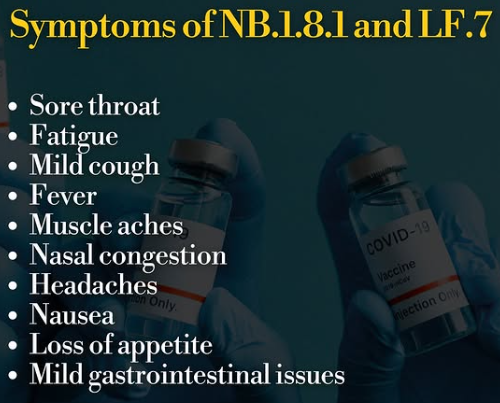A new COVID subvariant is making waves around the world—and it’s spreading faster than any we’ve seen in months. Meet NB.1.8.1, the latest Omicron spin-off that’s raising eyebrows for how quickly it’s moving across borders. The good news? It’s not more dangerous. The not-so-great news? It’s incredibly contagious and hitting just in time for summer travel.

The Latest COVID Variant Is Shockingly Contagious
| Takeaway | Statistic |
|---|---|
| Global share jumped from ~4% to ~33% in five weeks | 33% |
| Stronger cell binding than prior variants | — |
| Vaccine protection against severe disease remains high | ~1.5× lower antibody response |
NB.1.8.1 isn’t rewriting the COVID playbook—but it’s a reminder the virus is still with us, quietly evolving. The symptoms might feel familiar, but the way it spreads is changing fast. And that means our approach needs to keep evolving too. Personally, this bout reminded me that even “mild” COVID can be a major inconvenience. A few days of caution can spare you a week of recovery.
What’s Different About NB.1.8.1?
NB.1.8.1 was first spotted in January and has since been flagged by the World Health Organization as a “variant under monitoring.” That means scientists are keeping a close eye on it but haven’t labeled it a major threat—yet.
In places like Ireland, the UK, China, and the U.S., the variant has quickly gained ground. Researchers believe its spike protein helps it bind to human cells more efficiently than earlier Omicron strains, which could explain its rapid spread.
“This variant appears to spread more efficiently but isn’t more virulent,” says Dr. Claire Taylor, a virologist at Queen’s University Belfast. “For now, vaccination still protects people from the worst outcomes.”
What It Feels Like to Catch It
I tested positive for NB.1.8.1 earlier this spring. It felt different from previous strains—less about the lungs, more about general fatigue and digestive weirdness. Here’s what I and many others are noticing:
Day 1: It Sneaks In
- Sore throat, scratchy and dry
- Slight fever and chills
- Sudden, unexplained tiredness
Days 2–3: Cold-Like Symptoms
- Runny nose, light cough
- Body aches, especially in the lower back
- Headaches that come and go

Days 4–5: Surprise Gastro Symptoms
- Mild nausea, no appetite
- Some cases of diarrhea
- Stomach cramps that mimic a stomach bug
Recovery: Quick But Frustrating
- Most people recover within a week
- Fatigue can linger for days
- No hospital visit needed for most vaccinated individuals
It wasn’t the worst illness I’ve had—but it knocked me off my feet for four days, even with a booster on board.
Are Vaccines Still Doing Their Job?
Yes, they are—especially where it counts most. While lab tests suggest that NB.1.8.1 slightly reduces antibody response, vaccines still offer strong protection from hospitalization and severe illness.
Dr. Kevin Tan, an infectious disease specialist at UC San Francisco, says that “the antibody drop isn’t clinically significant for most people. What matters is T-cell immunity, and that’s holding up.” For high-risk individuals, doctors still recommend getting the latest booster available.
Smart Ways to Protect Yourself
Even if you’re not worried about getting seriously ill, you probably don’t want to spend your vacation in bed. Here’s how to lower your odds of catching NB.1.8.1:
- Stay current on your booster. It really helps.
- Wear a high-quality mask in busy indoor spaces.
- Use rapid tests at the first sign of symptoms—or before gatherings.
- Watch for stomach issues, not just respiratory ones.
- Talk to your doctor about antivirals if you’re immunocompromised.






